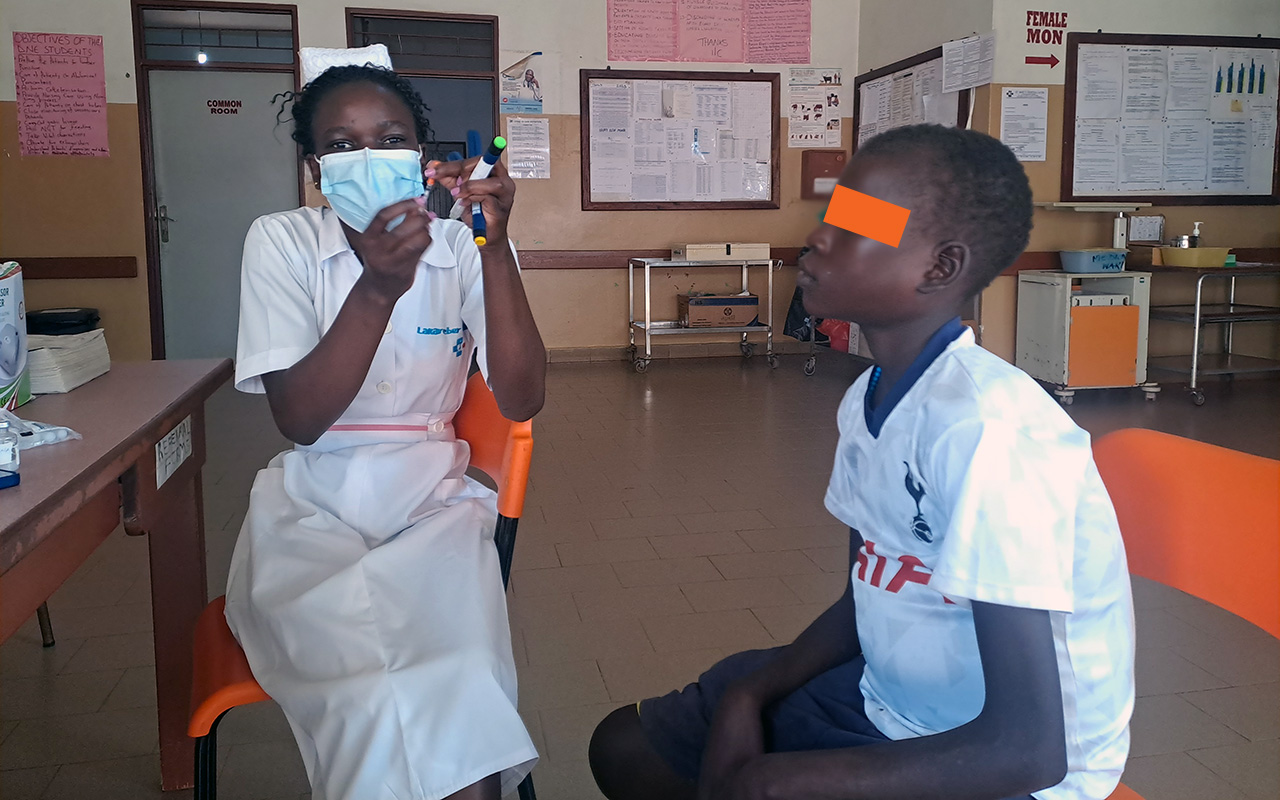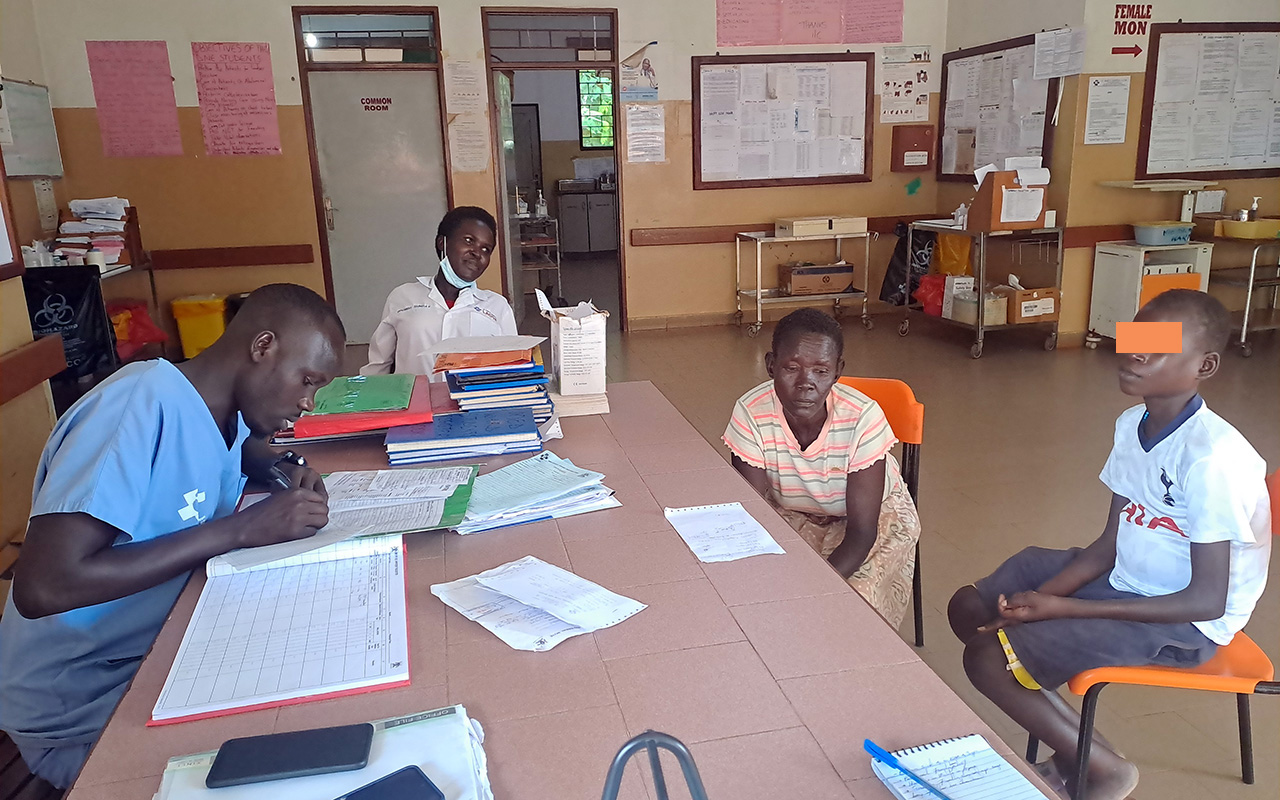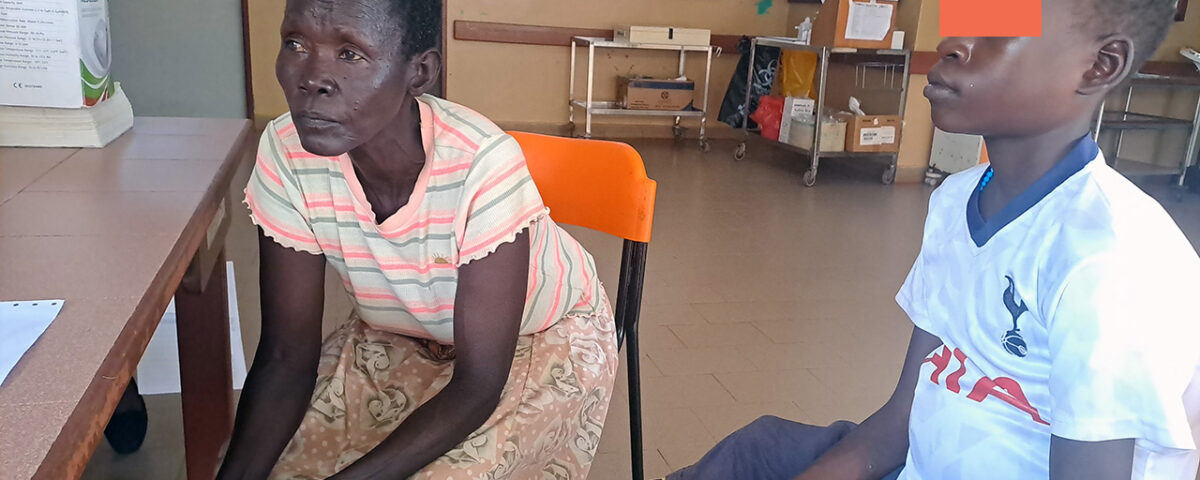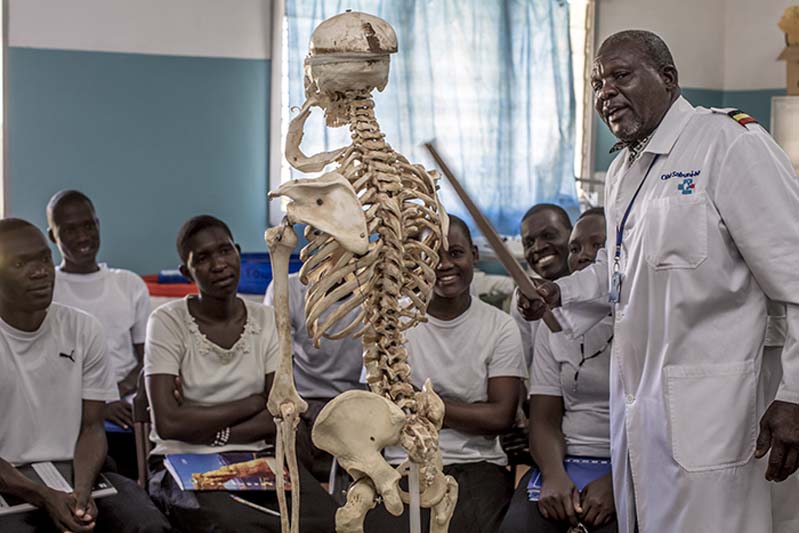This boy was desperate – so much that whenever someone greets him and say; “Benji, how are you?” his immediate response was; “I want food.”
15-year-old Benji [not real name] has known no peace ever since he was a little boy. His parents got separated when he was about a year old over bride price demands from his maternal home and as Acholi tradition demands for a woman whose dowry has not been paid, his maternal grandparents have been taking care of him since his mother left to be with another man. All has not been well for this family as poverty rages on, wreaking havoc in their little home in Apaa village in Amuru district.
About three years ago, Benji became critically ill and he was managed in the nearby clinics. His sickness kept coming and going without a proper diagnosis. The clinics could no longer manage and so he was referred to Lacor HCIII Amuru. It was there that he was diagnosed with type 1 diabetes. He had to be transferred to Lacor Hospital main complex for further management.
At this point, Benji’s grandparents were overwhelmed and decided to reach out to his paternal home for help who demanded his return. Unfortunately, his father died a few days after his return. Young Benji had to live with his uncle who cared little about his condition. Soon he became very ill again but no one bothered to take him to a health facility.
On learning about his ailing grandson, his grandfather came from his maternal home, picked him up and brought him to Lacor HCIII Amuru from where he was immediately rushed to Lacor main hospital. Thanks to the hard work of our dedicated staff, Benji was well again after week and was discharged.
Living with type 1 diabetes means that Benji has to take insulin injections daily, and his meals served at the right time. They were given instructions and sent on their way with insulin doses for a month.
The medics had hoped that this would mark the beginning of a better outcome for Benji, but no; just about a week after going home, Benji was found lying under the veranda of children’s ward almost lifeless. It appeared someone had dumped him there and left in a hurry.

Philippa demonstrating how to use insulin pen to Benji
Philippa, a nurse at the Medicine Ward who had administered drugs to him before quickly recognised him and with the help of others, took him to the Medicine Ward. A random blood sugar test was done and the levels were found to be abnormally high. He had to be taken to the Emergency Unit for proper management.
Benji was stabilised and later regained himself after being managed for Diabetes Ketoacidosis (DKA), a condition in which the body breaks down fats which leads to a rise in acid and ketone levels in his body.
Polyphagia being one of the symptoms of type 1 diabetes, brought Benji an uncontrolled urge to eat, but he must eat only at the appointed time after receiving his insulin dose. Even then, he has no one to give him food. This boy was desperate – so much that whenever someone greets him and say; “Benji, how are you?” his immediate response was; “I want food.”
“It was so difficult for us to see him in that state. We were wary of administering his insulin dose because we didn’t know where he would get food from,” says Philippa. This young man was in danger of losing his life.
Thanks to the generous support from donors and well-wishers, the Lacor Hospital has a programme that supports the most vulnerable such as Benji. He was enrolled on free treatment and given a card that allows him access to free meals from the hospital’s cafeteria.
Philippa has been acting as his immediate caretaker with support from her wonderful colleagues in the Medicine Ward of St Mary’s Hospital Lacor, who take turns looking after him. “He’s very bright; he has mastered how to administer the insulin doses on his own after a short training, and he has the desire and will to live” says Philippa.
One look at Benji and you could easily tell that all is not well with him. The boy looks younger than his age in his emaciated body. He somewhat looks confused. Philippa believes this could be a temporary mental disorder caused by the severe case of the disease.
Even so, it is evident that Benji is determined to come out on top, not matter the cost. He may have to survive on insulin all his life, but his resolved in life is intact. We asked him what he wants to do after he gets out of the hospital and he said; “I don’t want to go anywhere. I want to stay here and work with you guys.”

Geoffrey and his grandmother at Medicine Ward
As much as we want it, that cannot happen until he achieves his dream of becoming a doctor. It is possible that Benji is afraid of going back home where he’ll be without food most of the time. This will affect his adherence to medication and could end his life as well. He needs to eat shortly after taking insulin which must be injected daily.
It’s hard to manage type 1 diabetes in patients from poor backgrounds. Insulin is too costly, let alone the fact that it has to be kept in a cool place to avoid being denatured. For now, the hospital, through Sonia Nabeeta Foundation, a non-profit organisation that supplies HbA1C machine, their strips and transport refund, and Changing Diabetes in Children, CDiC – which supplies insulin pens, glucometer, needles and glucose strips, will take care of his insulin needs, but what about the food?
Dr Gimono Martha, who sees children in the young child diabetic clinic in the hospital, says; “Type 1 Diabetes is an autoimmune disease, that is; the body immune system attacks and destroys cells in the pancreas that produce insulin and that can show up at any age including neonates.” Some of the triggers are; viral infections, childhood vaccinations, increased insulin demand and lower level of Vitamin D.
Dr Martha says Benji will have to be on a life-long insulin treatment, taking injections daily. “It is a very treatable disease with no cure and no matter how frightening and frustrating it is, people with type 1 diabetes can live longer, healthy and happy lives when managed well.”
“Type 1 diabetes is mostly under diagnosed due to knowledge gap, yet it is so easy to screen. Routine blood glucose monitoring, early detection and adherence to medication are key. Every sick baby should have their glucose checked. This would be the best way to catch the disease early,” says Dr Martha.
After several weeks, Benji’s grandmother finally showed up. She had been struggling to raise enough money for transport to make the 82km distance between her home and the hospital. The young child diabetic clinic at Lacor, to which Benji has been enrolled does home visits to monitor adherence to treatment and sensitise family members. Once discharged, he’ll have enough insulin doses for a month before needing a refill.
It is, however, a big gamble to count on his struggling grandparents to keep up with the demands for his treatment, especially food. Type 1 diabetes is a global burden that has affected 8.4 million individuals worldwide as of 2021 with 1.5 million younger than 20 years according to a finding by Gabriel A Gregory and others published on the Lancet Diabetes and Endocrinology website.
As of June 2022, diabetes was ranked 12th in the list of the most frequent causes of death in adults, claiming 1.7% of the patients admitted at Lacor Hospital. There are at least 57 children enrolled for long term care in our young child clinic with type 1 diabetes.


